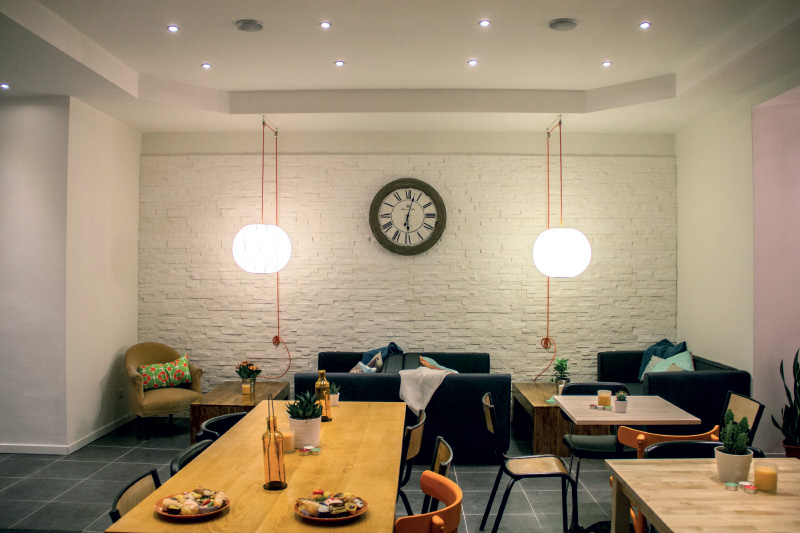There are those who put service and courtesy in the first place, those who think that time is worth more than a coffee, and those who put all on “price” instead. From the Big Apple to our Bel Paese, more and more places opt for unusual strategies to win or let themselves captivated by their clients, changing in some cases even habits of consuming at the bar.
In Valley City, in the outskirts of New York, two young people turned the offices of a former bank into a public place, where those who come in can have breakfast, take a coffee or some ice cream. However, the bizarre idea is not the new intended use, but rather the service: people come in, search for what they need, read the price and pay. All normal so far, except for the fact that nobody welcomes them, nobody serves them, nobody is at the checkout counter. Only a camera acting as “watcher”. Obviously, everything is cheaper and it seems that the idea of the two young people is working well; clients are happy and they leave even tips. In Italy, we don’t know how much “opportunity would make a thief”, or how much the idea to go into a bar and not hearing “good morning” or “do you prefer short or long coffee” would be appreciated. In our country, you become attached to the barista, appreciating his/her professionalism and kindness. Italians may be sly, less alert towards rules, but we love to be hospitable and friendly, have a little talk in front of a coffee. Trusting this good nature, some places restarted the old Neapolitan custom of “pending coffee”: a client starting the day in a good way or having something to celebrate on that day drinks a coffee and pays two, for a person coming after, who can’t pay for it. An offered coffee, a human action and definitely an extra smile. On the other hand, there are those who are repaid by a smile.
At the Petite Syrah in Nice, if clients politely address the person that is going to take the desired cup of coffee to one’s table, they do not have to pay the established additional charge for espresso. An invitation to respect good manners – let it be clear that the same treatment is also expected from behind the counter – that penalises by doubling the cost of a coffee for those who don’t greet and, on the other hand, reward those who show kindness and politeness. Furthermore, the new AntiCafè formula is entirely Italian, or better Roman, where consumption is not paid, but rather the time spent seated at the table.

Brano consigliato per la lettura di questo articolo: Magic Arrow – Timber Timbre

